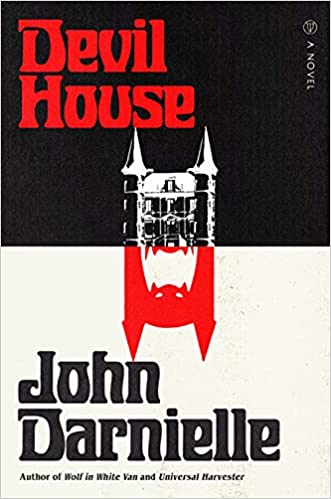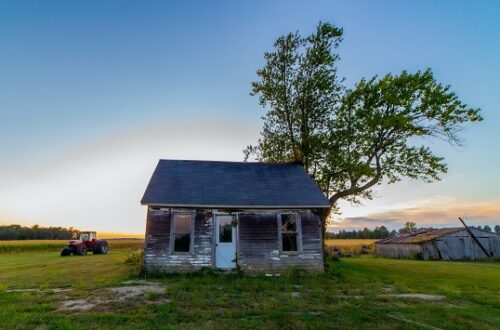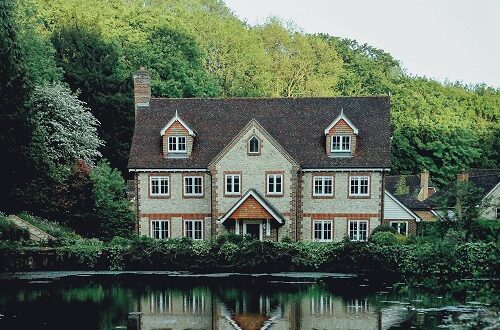
Book Review | Devil House by John Darnielle

A true-crime writer moves into the notorious “Devil House” where two people were killed, reportedly by teens affiliated with a Satanic cult. His research leads him back to his previous book about a local murder, and forces him to examine his own involvement.
“What happens when somebody tells a story that has real people in it? What happens to the story; what happens to the teller; what happens to the people?”
Devil House is a multilayered metafiction told in a nonlinear format divided into 7 parts. It’s mainly about two murder cases – a female teacher convicted of murdering two students in her house, and the unsolved murders of a landlord and a prospective house buyer in an abandoned adult shop. Both crime scenes are gruesome and elaborately told. The running theme here is the use of “castle doctrine” where a person has the legal right to use deadly force to defend their home. It’s reflected in the two cases and particularly in Part 4; an interlude of an Old English tale about kings that links to the writer’s royalty lineage. I did find this part to be the weakest because it feels unfinished in its execution. But I thought it was interesting how Part 7 is the other side of Part 1, Part 6 of 2, and so forth. It gave me different perspectives on the stories.
Like the author’s previous book Universal Harvester, this isn’t easy to digest. There are first, second, and third-person POVs so sometimes I wasn’t sure who was telling the story at first. But it was entertaining, like solving a puzzle. The detailed, stream-of-consciousness prose was persuasive and immersive. It made me feel as if I lived inside the characters’ heads. A section containing the letter from a victim’s mother is a gut punch, lingering long after I was done.
Admittedly I’m not the biggest fan of true crime because it can be exploitative and this book makes that particular point too. Yet I don’t think it’s a criticism of true crime – rather it asks questions about the responsibilities of authors and the aftermath of wading into other people’s lives. How much research is too much, and when does the search for truth become an obsession? The book also demonstrates how memories can be powerful yet fluid, open to different interpretations. Whose narrative deserves to be heard? What’s masterful is how this book humanizes everyone – the killers, the victims, the storytellers. Because it’s about the horrors of abuse, regret, and loneliness, yet also the power of friendship, connection, and home. Maybe it’s just me but I felt quite moved by the end.
Devil House is a complex study of grief, memory, and the power of stories. It will creep up on you when you least expect it.
CW: domestic violence, child abuse
I received a digital copy from Scribe UK and Netgalley for review purposes.
About the author: John Darnielle
Photo by Robbie Down




